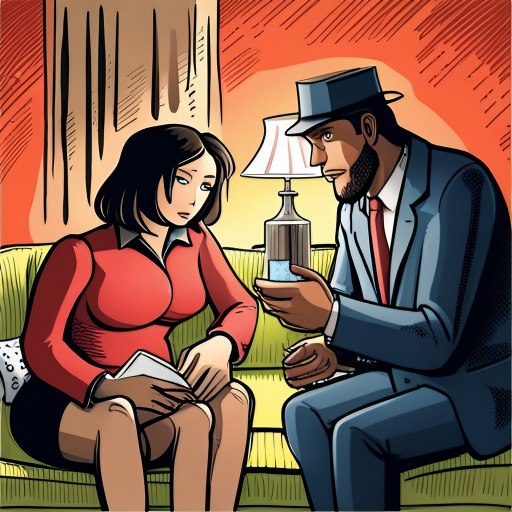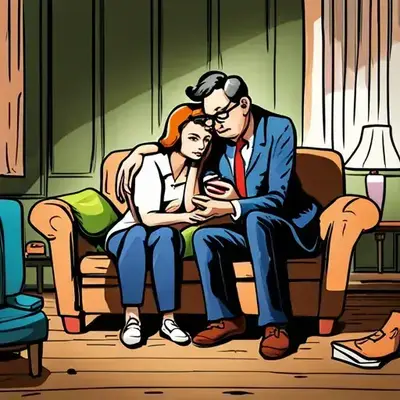As social beings, humans have always held a deep fascination for the cultural relationships and the diverse expressions of love and cuckoldry acceptance. One such intriguing expression, often veiled in silence and misconceptions, is the concept of cuckoldry. This blog aims to delve into the intricate societal and cultural perspectives surrounding cuckoldry, shedding light on the taboos that surround it, examining the levels of acceptance in different communities, and fostering a greater understanding of this unique and often misunderstood facet of human connections.
By exploring the historical origins, psychological motivations, and the impact of cuckoldry on individuals and relationships, we hope to provide a comprehensive and nuanced exploration that encourages open-mindedness and empathy in our discussions about this complex topic.

Historical Overview
Throughout history, cuckoldry has often been met with a mixed response. In some societies, it was considered a mark of humiliation, indicating betrayal and loss of honor. On the other hand, in certain cultures, it was accepted as a part of their social and cultural fabric, viewed as an arrangement that upheld familial and social stability. It is fascinating to note that even ancient civilizations, such as the Greeks, had traces of cuckoldry in their mythologies, further highlighting the complexity and tacit acceptance of this phenomenon. These diverse perspectives shed light on the intricate dynamics of human relationships and the ever-evolving nature of societal norms.n.
Modern Cuckoldry Cultural Perception
In our increasingly diverse contemporary society, perspectives on cuckoldry vary greatly, reflecting the intricate and nuanced tapestry of cultures that shape it. In Western societies, where liberal ideals of personal freedom and non-conventional relationships have gained significant traction, there has been a gradual acceptance and exploration of cuckoldry as a valid expression of human sexuality. This acceptance is accompanied by an ongoing discourse that delves into the complexities and intricacies of this phenomenon.
However, in more conservative societies, deeply rooted cultural and religious beliefs continue to foster a sense of distrust and disdain towards cuckoldry. These beliefs contribute to its stigmatization and marginalization, making it a topic that is often met with resistance and judgment. The clash between these contrasting viewpoints adds depth to the ongoing discourse surrounding cuckoldry, highlighting the importance of cultural context in shaping our understanding of this complex phenomenon.
By delving deeper into the cultural, societal, and historical aspects surrounding cuckoldry, we gain a more comprehensive understanding of its significance in different contexts. This broader perspective allows us to appreciate the diversity of human experiences and sheds light on the immense impact that cultural norms and values have on shaping our perceptions and attitudes towards relationships and sexuality.
Taboos Associated with Cuckoldry
Cuckoldry, a term associated with numerous taboos, primarily stems from the conventional model of monogamous relationships. The idea of one’s partner engaging intimately with another person is often considered a profound betrayal, leading to a complex web of emotions including feelings of humiliation, jealousy, and inadequacy. These deep-rooted taboos, deeply entrenched in societal norms and cultural beliefs, significantly influence public perception, acceptance, and understanding of cuckoldry, making it a topic that continues to evoke strong reactions and discussions.
Acceptance of Cuckoldry
Despite the prevailing taboos, there are spaces and societies where cuckoldry is accepted, even embraced. The rise of the internet and digital communication has created safe spaces for people to explore and understand non-traditional relationships, including cuckoldry. The growing discourse is helping challenge societal norms, fostering understanding and acceptance.
As we navigate these intricacies of human relationships, it is important to recognize that our opinions are shaped by our cultural, societal, and personal contexts. While cuckoldry might not align with everyone’s perspective, fostering an open dialogue can help us respect and understand diverse relationship models.
Conclusion
In conclusion, although cuckoldry remains a topic of controversy in many societies, it is crucial to foster a broader understanding and acceptance of diverse relationship dynamics. Let us continue the dialogue, shedding light on misunderstood aspects of our society and promoting a more inclusive world. We should embrace the beauty of diversity and strive towards a society that is more empathetic and accepting.
Whether we agree with it or not, cuckoldry is an integral part of human relationships that deserves further exploration and understanding in our ever-evolving world. So, let us keep the conversations going, challenging taboos and fostering inclusivity as we navigate the complex dynamics of love and intimacy. Ultimately, our ability to embrace diverse expressions of human connection is a testament to our progress as a society and our capacity for empathy and understanding.
You can find more information about real Cuckold story by reading our Dr. Silberstein’s Cuckold Journey Through Betrayal and Trust






